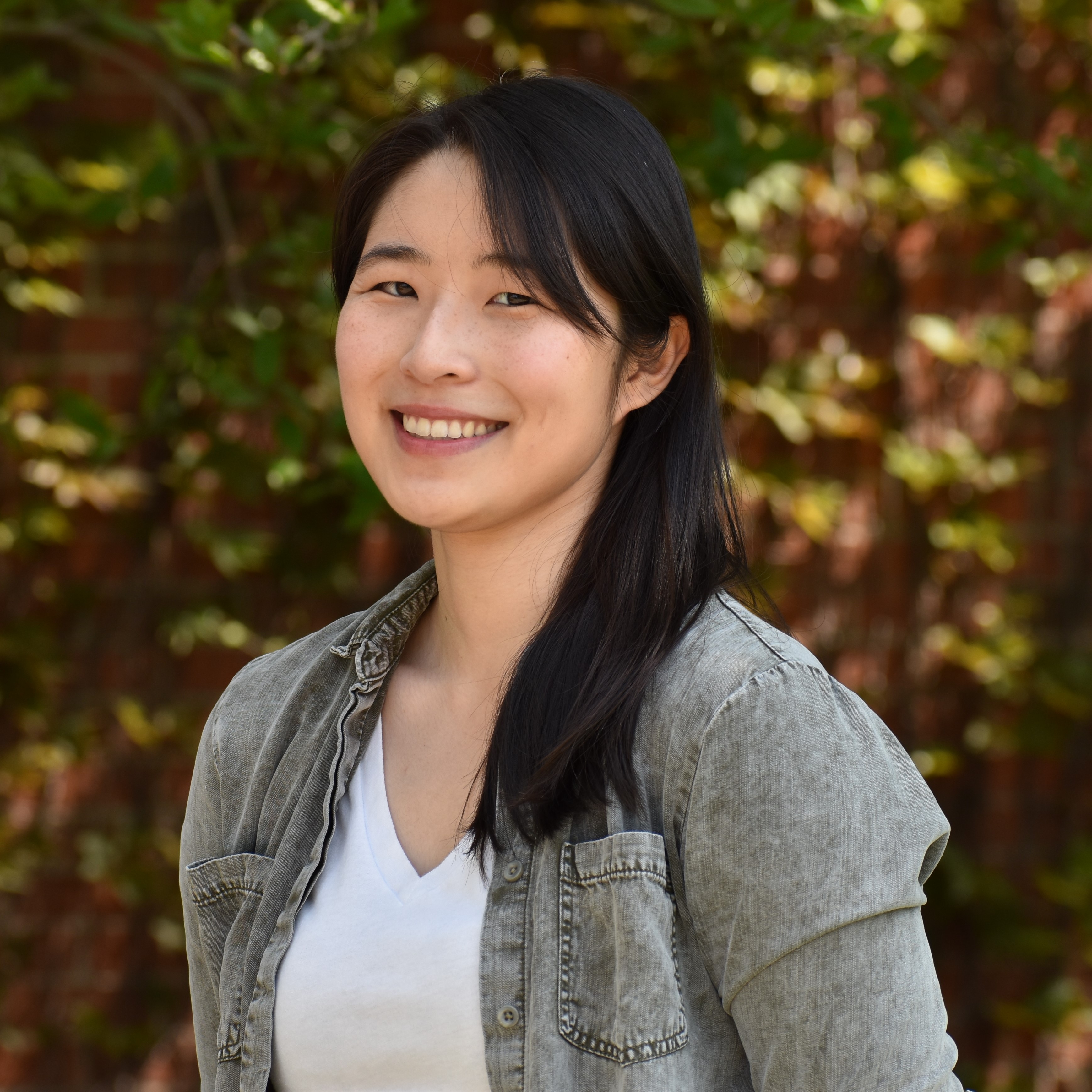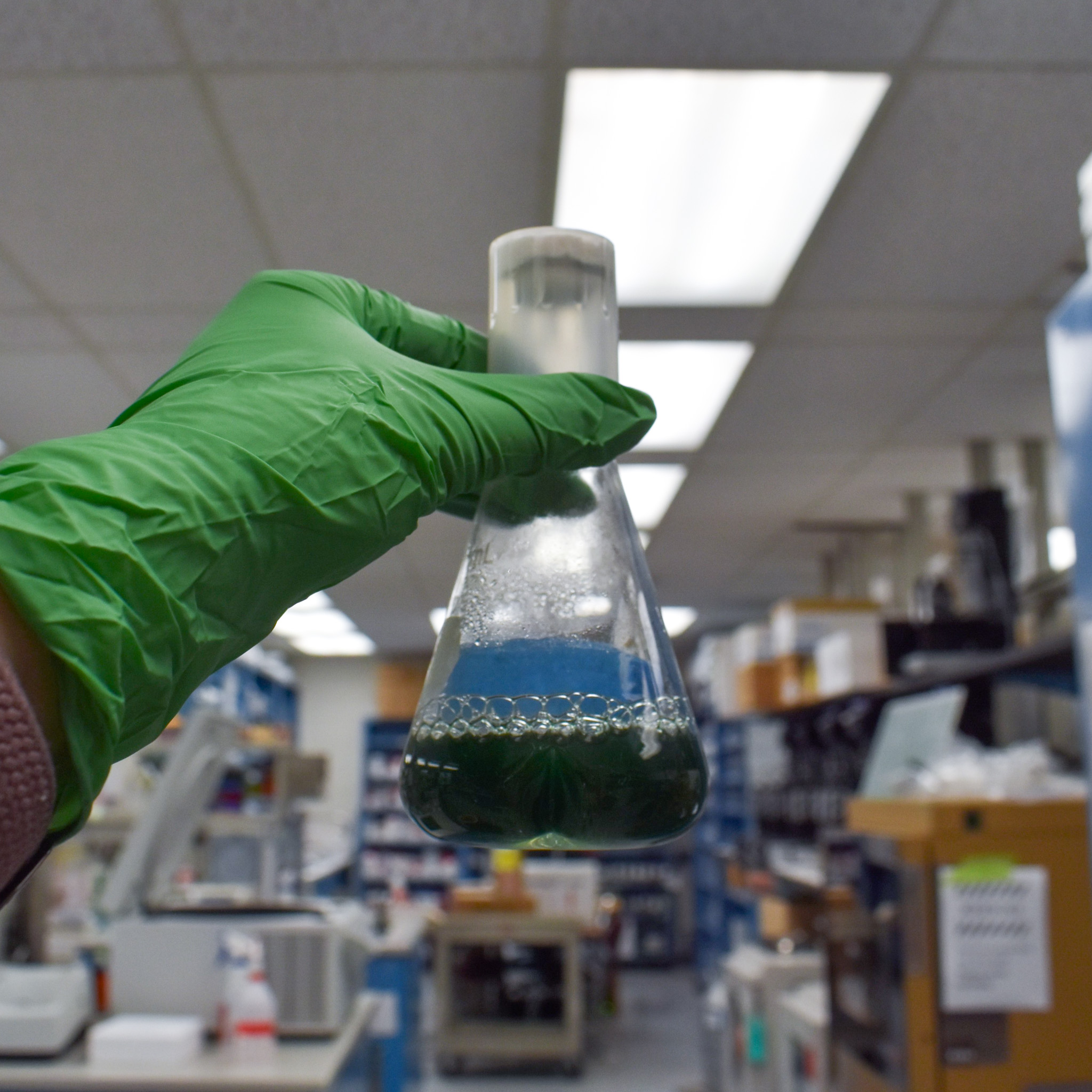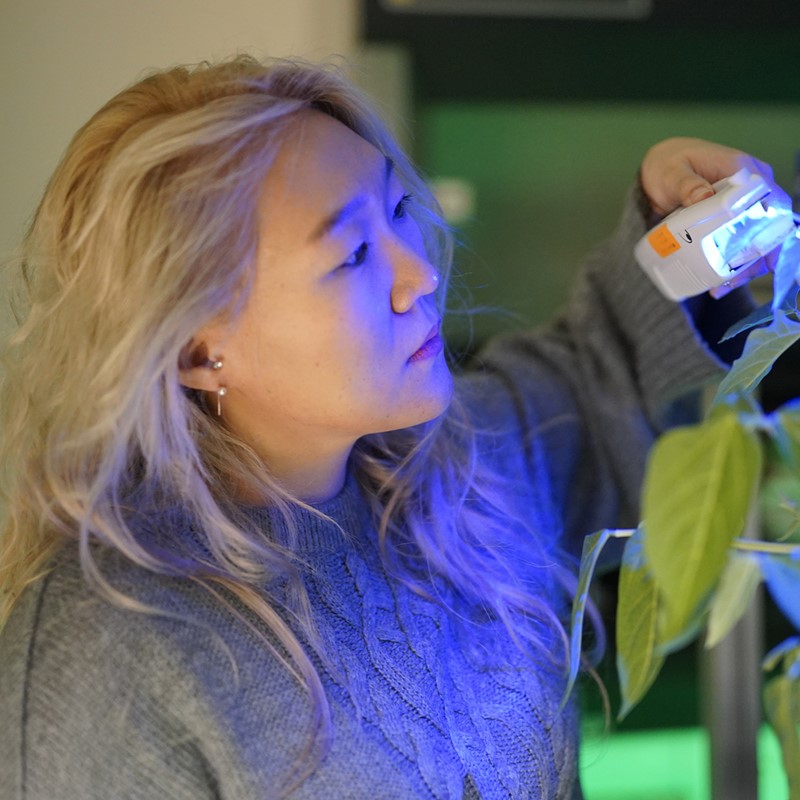Lisa Yun’s exploration into industry science from her internship at Pivot Bio

By Kara Headley
Lisa Yun, a graduate student in the MSU-DOE Plant Research Laboratory (PRL) Ducat lab, has worked at national laboratories and universities since beginning her professional career. When considering an internship, she wanted to experience industry work to better understand the differences between the workload and organization compared to academia. She wanted to work at a startup, more specifically, she wanted to be in a smaller environment with a goal for sustainability.
“One of the reasons why I wanted to do an internship was because people tend to start in academia and stay in academia, but they don’t often go to industry and come back,” Lisa said. Lisa is a graduate student in the Department of Biochemistry & Molecular Biology at MSU.
When searching for her internship, Lisa looked back at Berkeley where she received her B.Sc. at UC Berkeley. There, she found Pivot Bio, a start-up company focused on creating sustainable nitrogen alternatives for farmers. Lisa applied for the internship, and when she was offered the position, Lisa found a sublease for three months and flew out west.
The internship had a lot of lab work, so Lisa was mostly working in person. Before she started on her main project, Lisa was given a task to familiarize herself with the inner workings of the lab.
“Even if I know skills that I’ve learned at different labs from five years ago to now, every lab does it differently,” Lisa said.
Once Lisa was acclimated to the processes at her internship, she moved on to her next task. She was given a project pertaining to one of Pivot Bio’s products. For context, Pivot Bio has a fertilizer they make that farmers use. For this fertilizer, Pivot Bio’s scientists use a soil bacterium that delivers nitrogen from the atmosphere to plants to allow for better growth without the use of synthetic fertilizer. By using this product, farmers can grow crops without releasing runoff into local water systems.
Because these fertilizers will end up in the soil, Pivot Bio has regulations they need to follow. One of the regulations is that all genetic material within the bacteria must come from that organism. Lisa’s job was to find more tools to unlock that genetic material.
“The position allowed me to do some molecular cloning, I really loved that,” Lisa said.
The start of a day for Lisa would depend on the end of her previous one. She would start by assessing her overarching goal. Then, she would record what had been done the day before and what needed to be done next. Lisa would check up on the bacteria she grew the day before or she would prepare for cloning.
Additionally, Lisa would read papers to familiarize herself with that topic area of the company. In the first month or so, she would spend a lot of time going through previous presentations and other company-provided materials to learn more about Pivot Bio and what their long-term goals were.
Overall, this experience has made Lisa only more confident of wanting to go into industry.
“Generally, I hear things about industry and how people do an internship and then realize it’s not for them, but I really enjoyed my experience,” she said.
She hopes to use this experience as a way of showing to future employers that she could fit well into their work innovation or structure.
A piece of advice Lisa would give to younger students in the sciences would be to explore a section of their science that they’ve never worked in to see if it’s a good fit. She says this because “they don’t know what will work until they’ve tried it out… and because grad school is such a big investment, they will want to know of as many opportunities that are out there for them as possible.”
Banner image by Dan Meyers on Unsplash.



